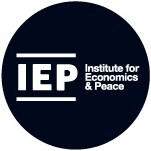2019 Global Terrorism Index: Deaths From Terrorism Halved in the Last Four Years, but Number of Countries Affected by Terrorism is Growing
LONDON, Nov. 20, 2019 /PRNewswire/ --
- Deaths from terrorism have decreased by 15.2 per cent in 2018 to 15,952 globally. This is the fourth consecutive year of improvement.
- The Taliban has overtaken ISIL to become the deadliest terrorist group in the world, recording a 71 per cent increase in terrorism deaths. The group was responsible for 38 per cent of all terrorist deaths globally in 2018.
- 98 countries improved this year, with 40 deteriorating — the highest number of countries to improve year-on-year since 2004.
- Terrorism still remains a global security threat with 71 countries recording at least one death in 2018 — the second highest number of countries since 2002 and four more than in 2017.
- Deaths in Europe fell by 70 per cent, with Western Europe recording its lowest number of incidents since 2012.
- There has been an increase in far-right terrorism for the third consecutive year in Western Europe, North America, and Oceania, with the number of deaths increasing by 52 per cent in 2018. This trend has continued into 2019, with 77 deaths to the end of September 2019.
- The global economic impact of terrorism was US$33 billion in 2018, a decrease of 38 per cent from the previous year.
According to the 2019 Global Terrorism Index (GTI), deaths from terrorism fell for the fourth consecutive year, after peaking in 2014. The number of deaths has now decreased by 52 per cent since 2014, falling from 33,555 to 15,952. The annual Global Terrorism Index, now in its seventh year, is developed by the Institute for Economics & Peace (IEP) and provides the most comprehensive resource on global terrorist trends.
The total number of deaths fell by over 15 per cent in 2018, with the largest falls occurring in Iraq and Somalia on the back of the defeat of Islamic State of Iraq and the Levant (ISIL) in Iraq and US-led airstrikes on Al-Shabaab. The fall in deaths was also reflected in country scores, with 98 countries improving compared to 40 that deteriorated. This is the highest number of countries to record a year-on-year improvement since 2004.
However, whilst the GTI finds that the intensity of terrorism has declined, it also shows that terrorism is still widespread and increasing, with 71 countries suffering from at least one death. This is the second highest number since the beginning of the century.
- The number of countries recording a death from terrorism increased from 67 countries to 71 in 2018.
- Afghanistan had the largest increase in deaths from terrorism, up by 59 per cent from the prior year, and is now at the bottom of the index.
- For the first time since 2003, Iraq was not the country most impacted by terrorism.
- Other than Afghanistan only three other countries — Nigeria, Mali and Mozambique — recorded a substantial increase in deaths from terrorism in 2018. Each of these countries recorded more than 100 additional deaths.
- South Asia has had the highest impact from terrorism since 2002, while Central America and the Caribbean region has had the lowest impact.
Steve Killelea, Executive Chairman of IEP, explains the findings: "IEP's research finds that conflict and state sponsored terror are the key causes of terrorism. In 2018, over 95 per cent of deaths from terrorism were occurring in countries that were already in conflict. When combined with countries with high levels of political terror the number jumps to over 99 per cent. Of the 10 countries most impacted by terrorism*, all were involved in at least one violent conflict last year."
For North America, Western Europe, and Oceania, the threat of far-right political terrorism has been rising over the past five years, with 19 countries affected by attacks in this period. In these regions far-right attacks increased by 320 per cent between 2014 and 2018. This trend has continued into 2019, with 77 deaths attributed to far-right terrorism from the start of the year until the end of September. Unlike Islamist terrorism, none of the perpetuators in 2018 claimed to be a member of an organised terrorist group, making it difficult for security organisations to prevent such attacks.
The rise in terrorist activity in Afghanistan, coupled with the winding down of the conflicts in Syria and Iraq, resulted in the Taliban overtaking ISIL as the world's deadliest terrorist group in 2018. The number of deaths attributed to the Taliban rose by just under 71 per cent, to 6,103, and accounted for 38 per cent of all deaths globally. In contrast, deaths attributed to ISIL fell globally by just under 70 per cent, falling from 4,350 in 2017, to 1,328 in 2018.
However, some ISIL affiliate groups have recorded increased levels of terrorist activity. The Khorasan Chapter of the Islamic State was the fourth deadliest terrorist group in 2018, with over a thousand recorded deaths, with the majority of these deaths occurring in Afghanistan. In total, there were thirteen groups or movements who each killed more than hundred people in 2018.
There has also been an increase in female participation in terrorism, although it still accounts for a small percentage of all attacks. The trend has intensified over the past five years, with the number of female suicide attacks increasing by 450 per cent between 2013 and 2018. In contrast, male suicide attacks fell by 47 per cent over the same period. Most of this increase can be attributed to Boko Haram, accounting for nearly 80 per cent of all female suicide attacks in the last five years.
In Europe, the number of deaths from terrorism fell for the second successive year, from over two hundred in 2017 to 62 in 2018. Only two attacks killed five or more people.
Mr Killelea explains: "The collapse of ISIL in Syria and Iraq was one of the factors allowing Western Europe to record its lowest number of incidents since 2012, with no deaths attributed to the group in 2018. However, the situation still remains volatile, with large parts of Syria being contested and many smaller groups sympathetic to ISIL philosophies being active, leaving the possibility of further Islamist attacks in Europe."
The fall in terrorism has also been accompanied by a reduction in the global economic impact of terrorism, decreasing by 38 per cent to US$33 billion in 2018. Compared to other forms of violence such as homicide, armed conflict, and military expenditure, terrorism is a small percentage of the total global cost of violence, which was equal to US$14.1 trillion in 2018. However, the true economic impact of terrorism is likely to be much higher as these figures do not account for the indirect impacts on business, investment, and the costs associated with security agencies in countering terrorism.
Notes to Editors
The full GTI 2019 report and interactive map are available at: www.visionofhumanity.org
Follow: @GlobPeaceIndex #TerrorismIndex
Like: www.facebook.com/globalpeaceindex
* 10 countries most impacted by terrorism
1) Afghanistan 2) Iraq 3) Nigeria 4) Syria 5) Pakistan 6) Somalia 7) India 8) Yemen 9) Philippines 10) Democratic Republic of the Congo
Global Terrorism Index (GTI)
The GTI by the Institute for Economics & Peace provides a comprehensive summary of the key global trends and patterns in terrorism over the last 18 years. The report ranks 163 countries (99.7 per cent of the world's population) according to how impacted they are by terrorism. The indicators include the number of terrorist incidents, fatalities, injuries and property damage.
Global Terrorism Database
The GTI uses data from the Global Terrorism Database (GTD) datasets on terrorism by the National Consortium for the Study of Terrorism and Responses to Terrorism (START), a Department of Homeland Security Center of Excellence led by the University of Maryland. It provides the most comprehensive resource on global terrorist trends.
Institute for Economics & Peace
The Institute for Economics & Peace (IEP) is the world's leading think tank dedicated to developing metrics to analyse peace and to quantify its economic value. It does this by developing global and national indices, including the annual Global Peace Index, calculating the economic cost of violence and understanding positive peace.
Logo - https://mma.prnewswire.com/media/792052/IEP_Logo.jpg






Share this article